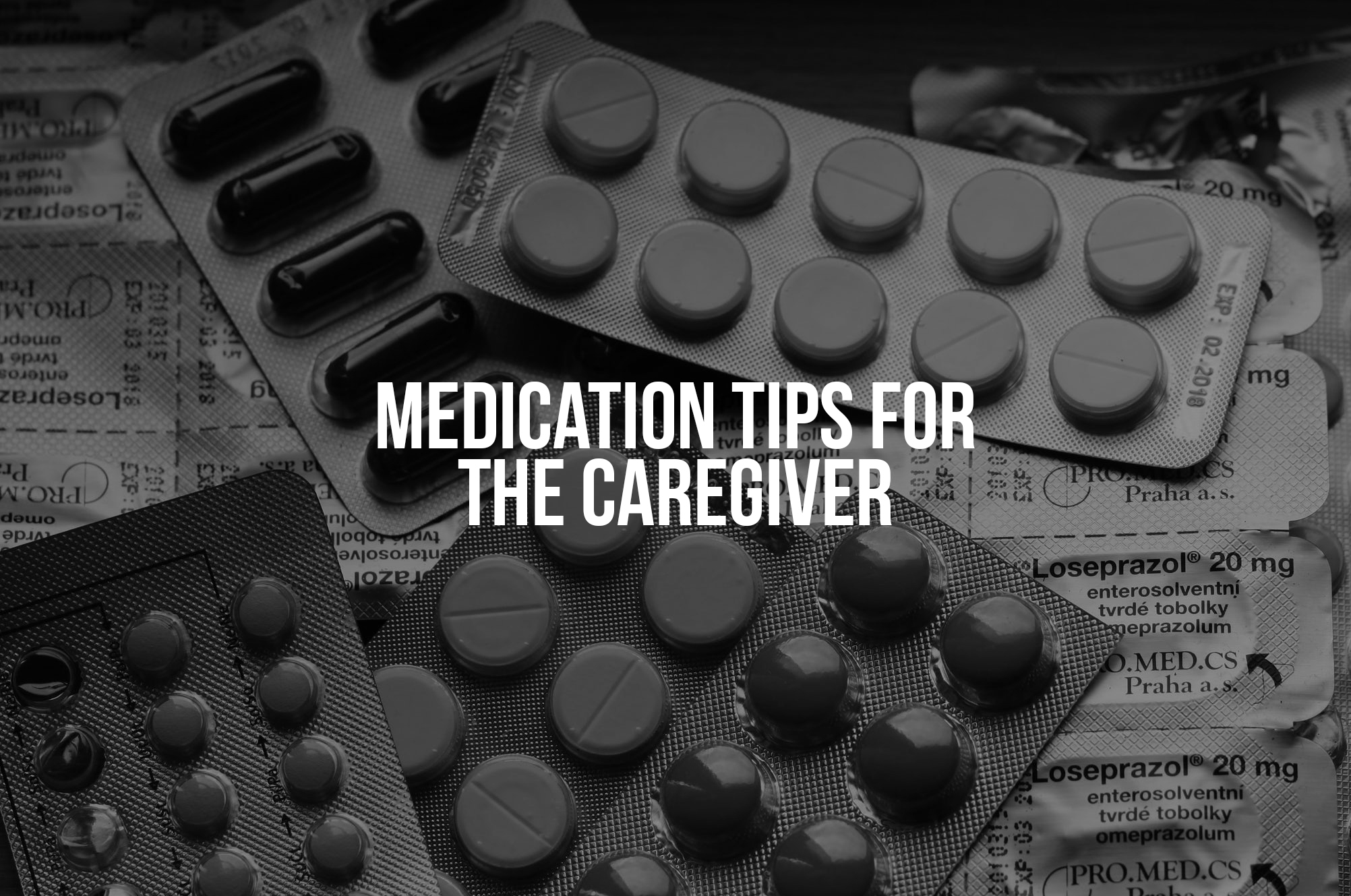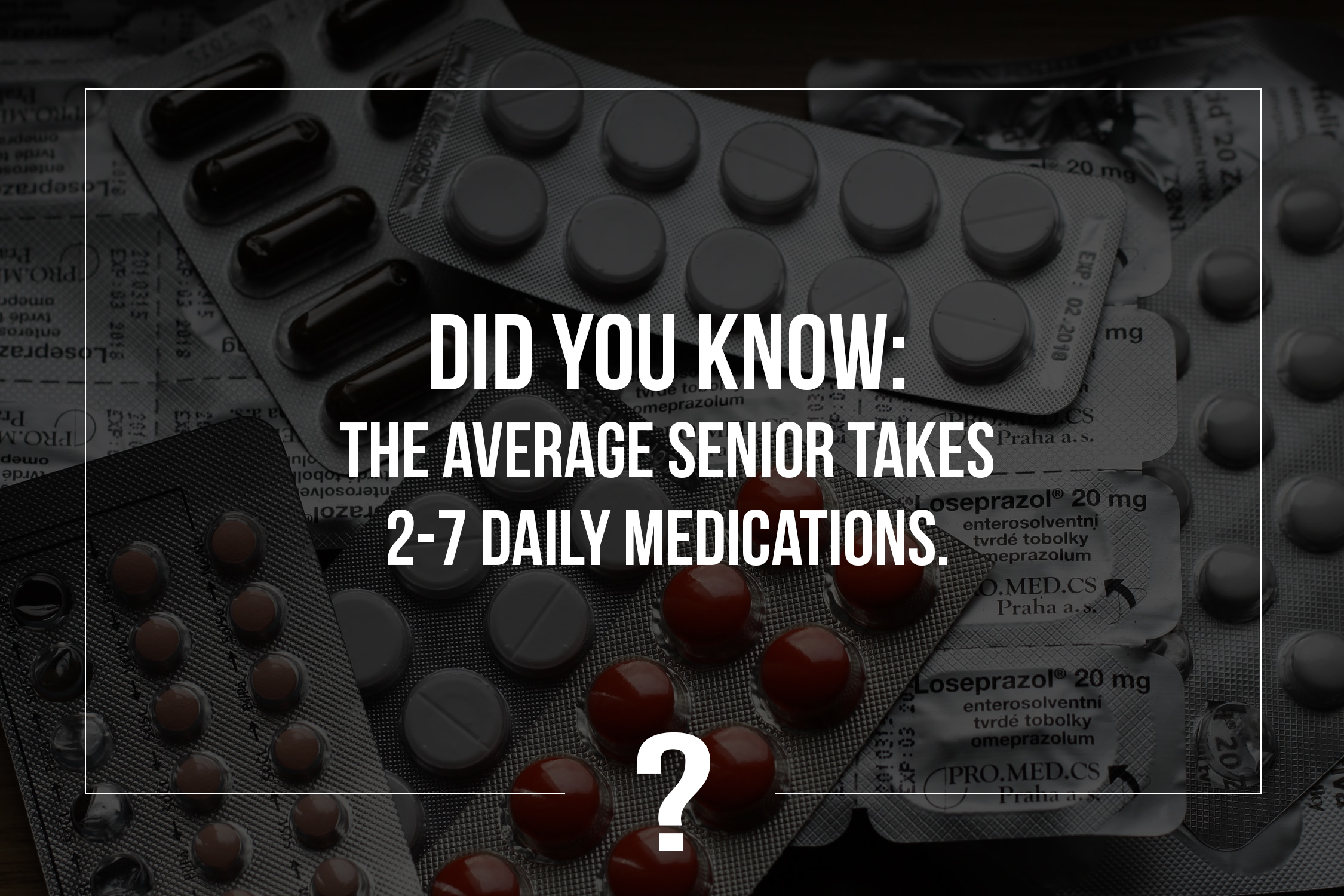In the midst of all the many caregiving tasks, medication management can easily slip through the cracks. Continue providing the best care for your loved one by utilizing these tips to ensure they stay healthy and remain comfortable. Medications can be confusing for aging seniors, so assisting in making sure your loved one is up-to-date on their medications and are taking the right pills on the right days is one of the ways you can provide excellent care through this sometime challenging time.

_____________________________________________________________________________________
Did you know that the average senior takes two to seven daily medications? As we age our bodies change, affecting the way medications (and foods) are absorbed, distributed, metabolized, and excreted. All of these things can create a greater risk of drug interactions and side effects. The more medications our loved one takes daily, the easier it is to lose track of how many to take and when they should be taken. A great way the caregiver can help is to use a medication organizer for their loved one.

Here are more tips to support your loved one when it comes to taking medications:
- Make sure all of their doctors and specialists are aware of what the other is prescribing. Good communication is extremely important.
- Make sure all medications are clearly labeled.
- Keep medications in their original containers.
- Use a medication organizer.
- Don’t store medications in sunlight or direct heat. Store medications properly.
- Never store medications in the bathroom. There is too much moisture there.
- Use whatever means you can to help your loved one take medication properly.
- Use one pharmacy for all your loved one’s medicines. This will help ensure they don’t take conflicting medications.
- If your loved one has questions about their pills, make a note to ask their doctor or pharmacist.
- Tell their doctor if they have any side effects.
- Be sure to tell your doctor or pharmacist of any herbal preparations your loved one is taking. Some herbals can interact with prescribed medications and cause them to be less effective.
- Know the names and doses of the medicines your loved one is taking.
- Keep all medicines out of the reach of children.
- Throw away any medicines that aren’t currently prescribed to your loved one.
- Ask your pharmacist’s advice before crushing or splitting tablets. Some should only be swallowed whole.
Did you know that drug misuse is one of the top problems that doctors see in seniors? Did you know that about 320,000 questionable prescriptions are written for seniors yearly? Almost 40% of all drug reactions each year involve seniors. Be responsible. If you have any medication questions be sure to ask your pharmacist.
Written by Rebecca Colmer for seniorslist.com